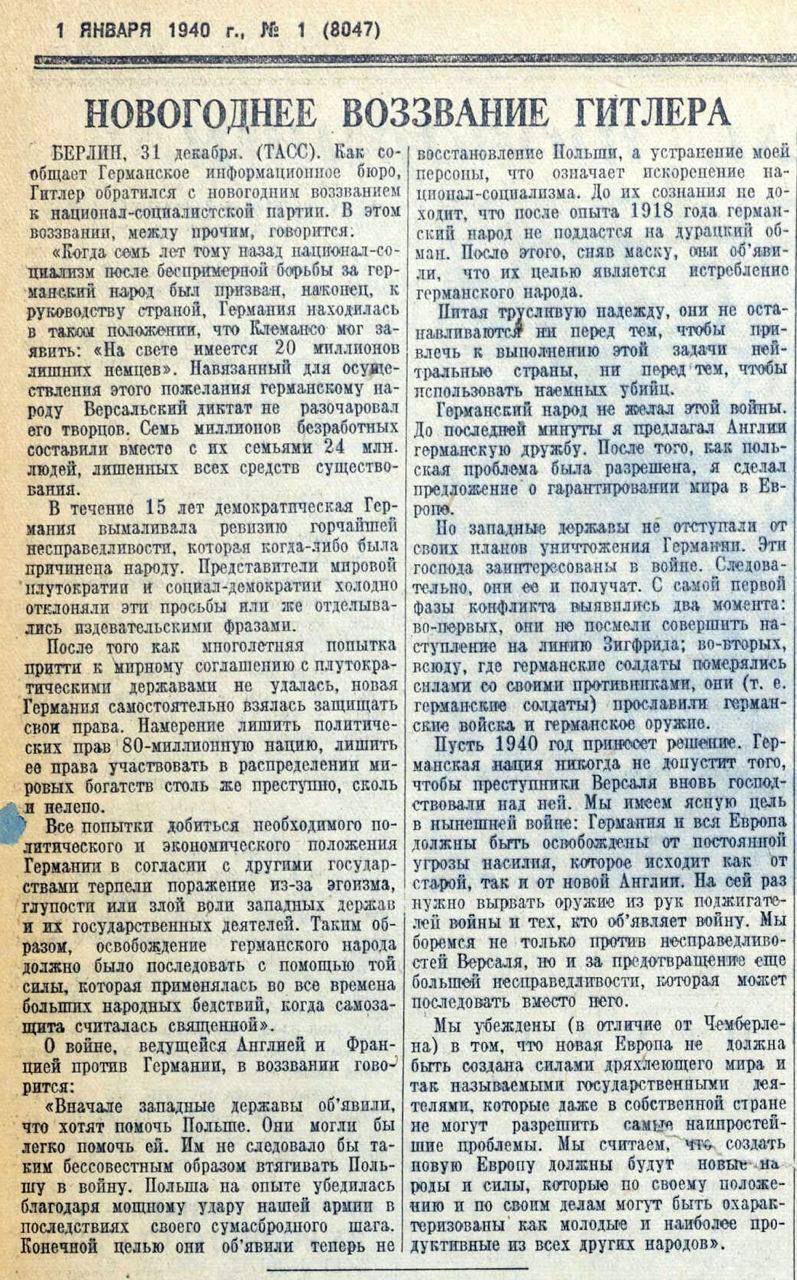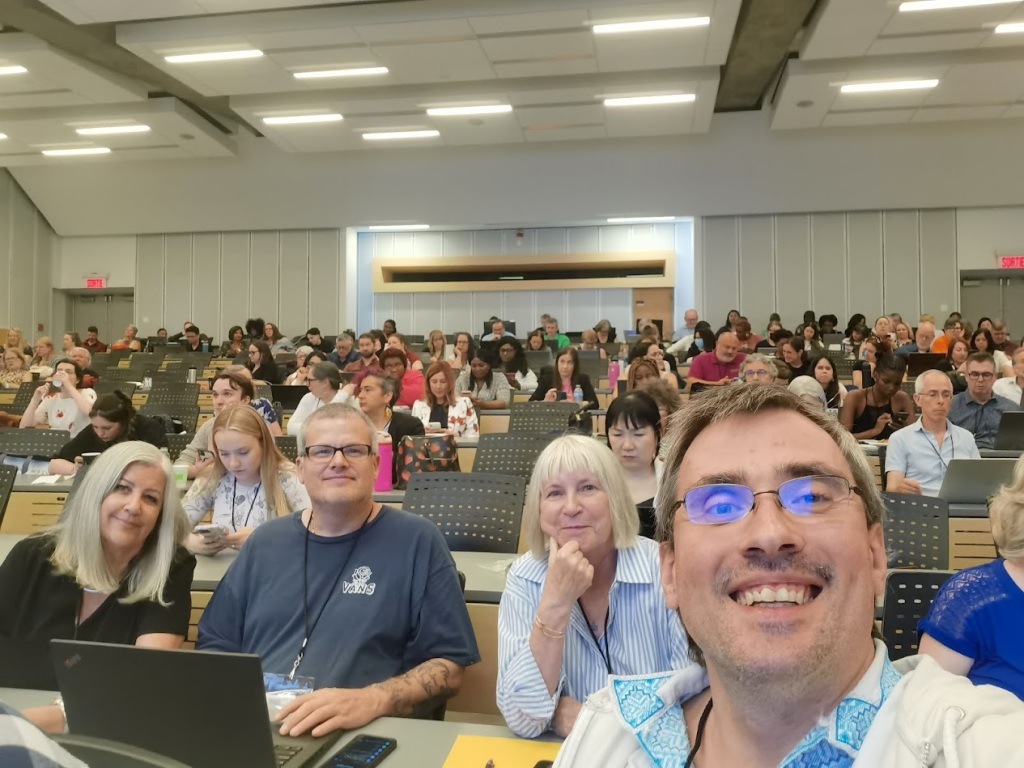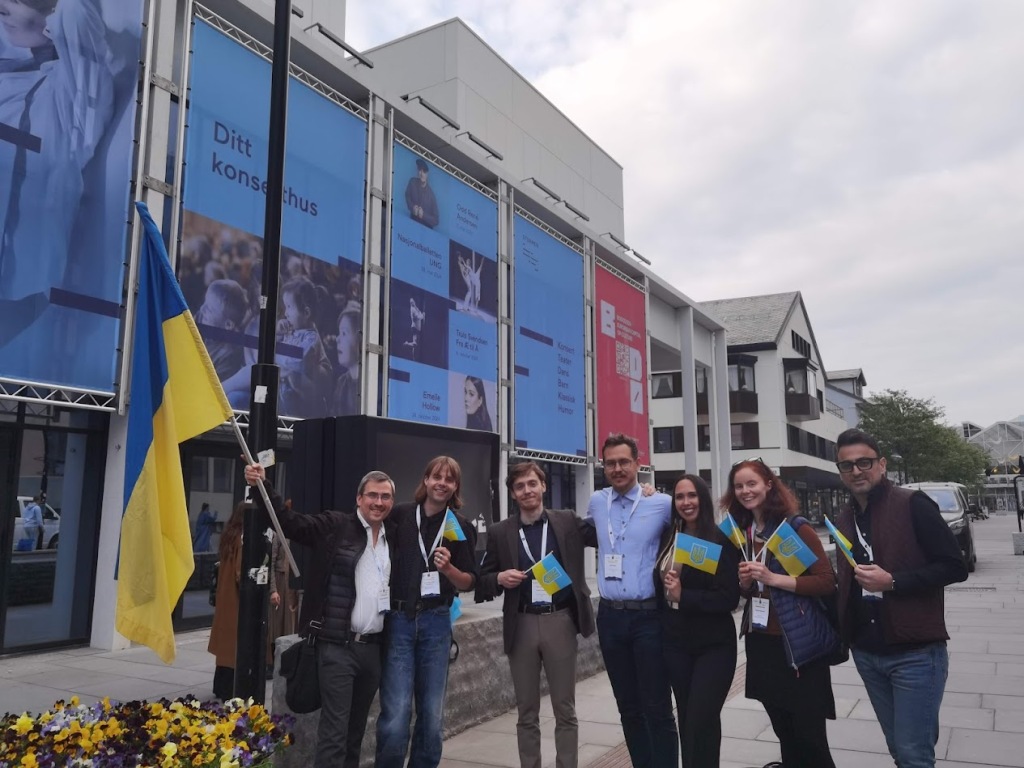Preamble:
Attending the recent Arctic Congress, I was struck by the presence of several participants from russia who, due to current sanctions, were unable to list their official affiliations. Despite this, they continued to promote the myth that russian scientists are victims in need of support. However, what was glaringly absent from their narrative was any acknowledgment of the fact that the war in Ukraine is a direct result of russian aggression and that the sanctions imposed on russia are designed to deter their illegal land grab in Ukraine.
It is deeply concerning that these pro-russian participants seem to prioritize their own perceived victimhood over the real and devastating human cost of russia’s actions in Ukraine. Every day, innocent Ukrainians are losing their lives due to russia’s war, yet these scholars fail to acknowledge this reality. Instead, they focus solely on the inconveniences they face as a result of sanctions, ignoring the far greater suffering endured by the Ukrainian people.
The presence of such individuals at the Arctic Congress threatens the security and stability of Arctic states. It is crucial that organizers of future events exercise caution when inviting scholars from russia, particularly those who deny or downplay russia’s crimes against humanity in Ukraine. Providing a platform for these views risks legitimizing their narrative and undermining the international community’s efforts to hold russia accountable for its actions.
Moreover, the session titled “IASSA Pubinar – Quo Vadis Arctic Research and Partnerships with Russia?” failed to address the critical issue of how russian scholars can actively work towards stopping the russian invasion of Ukraine, which is the primary reason for the sanctions. Instead, the focus remained on preserving partnerships and cooperation with russian colleagues, without adequately addressing the problematic nature of such collaborations in the current geopolitical context.

The questions posed during the panel discussion, such as the possibility of continuing research on the circumpolar North and the implications of diaspora scholars, while important, do not directly confront the urgent need for russian academics to take a strong stance against their government’s aggression in Ukraine. By sidestepping this crucial point, the session risks normalizing the idea that research partnerships can continue unimpeded, regardless of the actions of the russian state.
As I delve into the alarming parallels between Hitler’s 1940 speech and Putin’s current actions in Ukraine, it is essential to keep this context in mind. The rhetoric employed by these russian participants echoes the dangerous justifications and victim-blaming tactics used by Putin to rationalize his aggression. By remaining vigilant and countering these narratives, we can work towards a more secure and stable Arctic region, one that stands in solidarity with the people of Ukraine and condemns russia’s egregious violations of international law and human rights.
Introduction:
As the world watches the russian aggression in Ukraine, it is crucial to recognize the historical parallels between Adolf Hitler’s rhetoric in his 1940 speech and Vladimir Putin’s current actions. The similarities are striking and serve as a stark warning of the potential dangers Europe faces. This article explores key parallels and the lessons we must learn from history.
Full Text of Hitler’s New Year Address 1940

The text was published on page 5 of Pravda newspaper (#1, 8047). One can find the image of the page online: https://gubernia.media/society/zaputannyy-put-k-pobede/
“After years of trying to reach a peaceful agreement with plutocratic states failed, the new Germany independently took up defending its rights. The intention to deprive an 80-million nation of its political rights, to deprive it of the right to participate in the distribution of the world’s wealth, is as criminal as it is absurd.
All attempts to achieve Germany’s necessary political and economic status in harmony with other states have failed due to the selfishness, stupidity, or evil impulse of Western states and their leaders. Therefore, the liberation of the German people had to take place with the help of that force which was applied in all times of great national calamities when self-defense was considered sacred.
At first, the Western states announced that they wanted to help Poland. They could have easily helped her. They should not have shamelessly dragged Poland into the war. Poland learned from the powerful blow of our army the consequences of its insane step. Their ultimate goal now is not the restoration of Poland, but the removal of my person, which means the eradication of National Socialism. They do not understand that after the experience of 1918, the German people will not succumb to absurd deception. After this, removing the mask, they announced that their goal is the extermination of the German people.
The German people did not want this war. Until the last minute, I offered England German friendship. After the Polish problem was resolved, I made a proposal to guarantee peace in Europe.
But the Western states did not retreat from their plans to destroy Germany. These gentlemen are interested in war. So, they will get it. From the very first phase of the conflict, two points became clear: first, they did not dare to attack the Siegfried Line; second, everywhere German soldiers measured their strength with their opponents, they (that is, the German soldiers) glorified the German troops and German weapons.
Let 1940 bring a resolution. The German nation will never allow the criminals of Versailles to rule over it again. We have a clear goal in the current war: Germany and all of Europe must be freed from the constant threat of violence that comes from both the old and the new England. This time, it is necessary to wrest weapons from the hands of the warmongers and those who declare war. We are fighting not only against the injustices of Versailles but also to prevent an even greater injustice that could follow it.
We are convinced (unlike Chamberlain) that the new Europe should not be created by the forces of the aging world and the so-called statesmen who cannot even solve the simplest problems in their own country. We believe that the new Europe must be created by new peoples and forces, which by their position and actions can be characterized as young and the most productive of all other peoples.”
Now, let’s explore key parallels between the above address and Putin’s rhetoric and the lessons we must learn from history.
1. Rhetoric of Justifying Aggression
Hitler: Justified Germany’s aggression as necessary for self-defense and to protect national interests from “selfish” Western states.
Putin: Asserts that Russia is defending itself from “hostile” Western countries and NATO, justifying his aggressive actions, including the annexation of Crimea and the war in Ukraine.
2. Manipulation of Historical Facts
Hitler: Distorted historical facts to justify his actions and demoralize the enemy.
Putin: Russian propaganda manipulates historical events, shifting the blame for conflicts onto the West and trying to legitimize territorial claims.
3. Creating an Enemy Image
Hitler: Claimed that Western countries aimed to destroy Germany.
Putin: Portrays the West as a threat to Russia, emphasizing the need to rally around his regime to protect national interests.
4. Militarization of Society
Hitler: Called on Germans to go to war, depicting it as a sacred duty.
Putin: Mobilizes Russian society to support military actions, using patriotic rhetoric and calls to defend the “Russian world.”
5. Imperial Ambitions
Hitler: Sought territorial expansion and the creation of a “new Europe” under German control.
Putin: Demonstrates ambitions to restore a “greater Russia” and influence in the post-Soviet space, aiming to revive the Soviet Union’s sphere of influence.
6. Justifying Aggression as Allegedly Defending the Rights of One’s Nation/Language
Hitler: Spoke of “depriving an 80-million nation of its rights.”
Putin: Speaks about “protecting Russians” in Ukraine.
7. Accusing the West of Selfishness, Stupidity, and Hostility
Hitler: Mentioned the “selfishness, stupidity or evil impulse of Western states.”
Putin: Accuses the West of Russophobia and hostility towards Russia.
8. The Thesis About the Inevitability of Force and Self-Defense
Hitler: “The liberation of the German people had to take place with the help of force.”
Putin: Justifies the “special operation” in Ukraine as a necessity for Russia’s security.
9. Denying One’s Own Desire for War and Offering Peace
Hitler: “The German people did not want this war. I offered friendship to England.”
Putin: Claims that Russia “does not want war,” positioning his actions as defensive.
10. The Thesis About “Warmongers” in the West That Need to Be Stopped
Hitler: Wanted to “wrest weapons from the hands of the warmongers.”
Putin: Talks about the Western threat and the need to neutralize it to protect Russian interests.
The Dangers for Europe
These historical parallels are alarming and point to significant dangers for Europe:
Rising Tensions: Putin’s rhetoric and actions increase tensions with the West, risking escalation into broader conflict.
Erosion of Trust: Manipulation of historical facts and enemy image creation erode trust between nations, making diplomatic resolutions harder to achieve.
Militarization: The call to arms and increased militarization threaten regional stability and can lead to an arms race.
Imperialism: Putin’s imperial ambitions undermine the sovereignty of neighboring countries and destabilize the region.
Global Order: Both historical and current events challenge the post-World War II international order, threatening global peace and security.
The lessons of the past should serve as a warning. It is crucial that Europe and the entire world remain united in their opposition to aggression, preventing the repetition of the tragic mistakes of history. Without decisive actions and international community unity, there is a risk of repeating the horrors witnessed in the last century. Recognizing these parallels and responding appropriately is essential to safeguard peace and stability in Europe and beyond.






Leave a comment